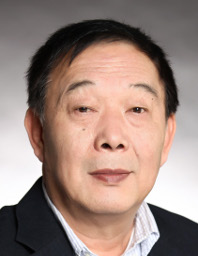RADLAB Seminar
WCOM: A New Chinese Satellite Mission for Study of the Global Water Cycle
Add to Google Calendar

Various attempts including a series of space-borne sensors have been developed and launched for Earth observation. Current and ongoing missions have been able to provide a large number of multiple temporal and spatial resolution observations associated with the water cycle. However, the capability of satellite observation and model forecasting are still quite limited for the research of the global water cycle and their response/feedback to the accelerating global change. The simultaneous observing capabilities, retrieval methods of key parameters of the water cycle should be developed and achieve a suitable optimal satellite through a new concept. The Water Cycle Observation Mission (WCOM) is proposed and focuses on the research of water cycle under global changes. Aimed at significantly improving the accuracy and synchronization of measurements for global water cycle key elements, including surface soil moisture, ocean salinity, snow water equivalent, soil freezethaw, atmospheric water vapor, precipitation and other associated parameters, the WCOM would include a combination of multi-frequency active and passive microwave sensors for more accurate, more efficient and better performance of measurement of these global water cycle key elements. It is able to develop high performance retrieval algorithms based on the synergy use of multi-source data. The payload configuration of the WCOM satellite includes an L-S-C tri-frequency Full-polarized Interferometric synthetic aperture microwave radiometer (FPIR), a Polarized Microwave radiometric Imager (PMI) covering 6.6 to 150 GHz band, and an X-Ku Dual-Frequency Polarized
SCATterometer (DFPSCAT) with high spatial resolution. Implementation of the WCOM mission will significantly improve the capability for spatial-temporal observation of the water cycle.
Dr. Jiancheng Shi is the director of the State Key Laboratory for Remote Sensing Science, which is part of the Institute of Remote Sensing and Digital Earth in Beijing, China. He is also the Principal Investigator on the WCOM mission. Before joining the State Key Laboratory, he worked as a research scientist at the Earth Research Institute at the University of California, Santa Barbara (UCSB). He received his B.A. from the University of Lanzhou in China in 1982, and his M.A. and Ph.D. degrees in Geography from UCSB in 1987 and 1991, respectively. He is a Fellow of IEEE and SPIE, and serves as an associate editor for Geoscience and Remote Sensing Letters and an IEEE
Distinguished Lecturer. Dr. Shi has wide research interests in remote sensing
technologies, especially in microwave remote sensing in both active and passive techniques and its applications in hydrology and climatic change. He has published more than 280 journal and conference papers related to the above research topics.
 MENU
MENU 
